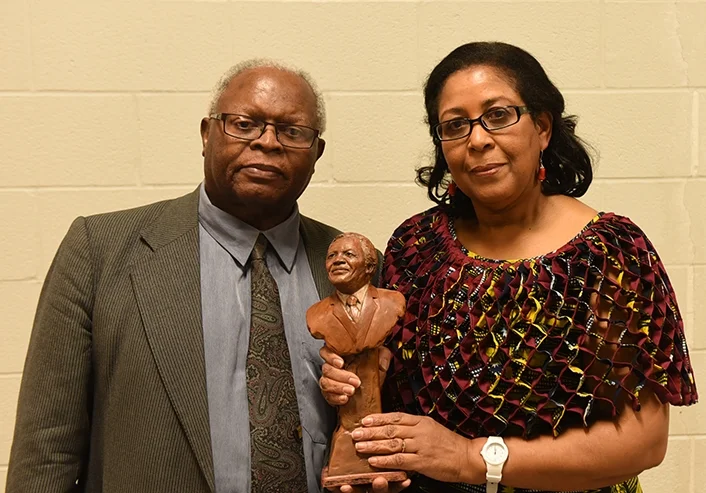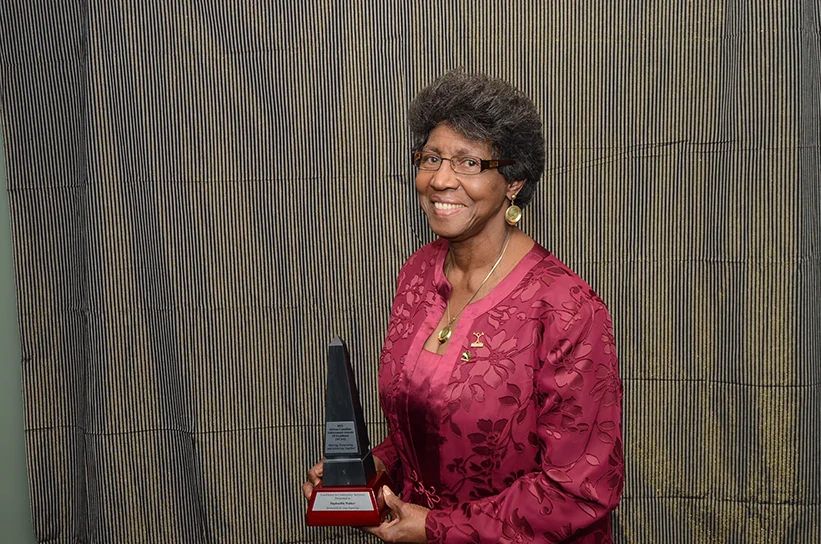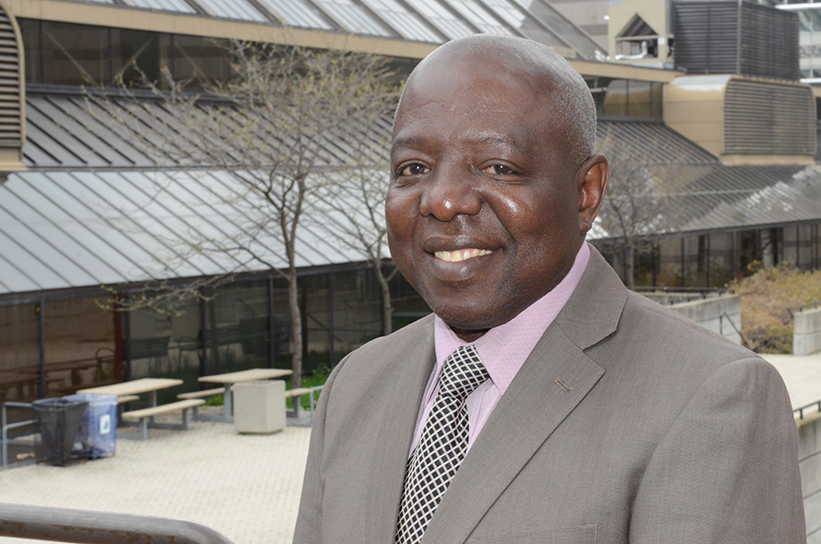‘Significant contributions’ in Durham recognized
February 12, 2017
Elkanah Clarke fell in love with Canada during a cultural exchange visit in 1964.
The youngest of 10 Jamaicans selected for the three-month trip to Toronto and London where he was a camp counsellor was in awe of the country’s beauty and its citizens’ flawless hospitality.
When the time came for Clarke to decide on a country to settle and raise his family, the choice was easy.
Like many immigrants, he has made a huge impact in his adopted homeland since 1972.
Clarke founded the Multicultural Council of Oshawa-Durham and the Canadian Jamaican Club (CJC) of Oshawa in 1980 and played an integral role in the launch of the Durham Police Race Relations Committee.
The CJC was among several organizations that morphed into The Inter-Organization Network Non-Profit Homes (TIRND) that successfully lobbied the provincial New Democratic Party provincial government for the establishment of Sarah McDonald Place 22 years ago.
Located at Whites Rd. and Hwy. 2 in Pickering, the building – that includes 46 rent-geared-to-income units – is designed to support disadvantaged families and help them get their lives back on track.
Clarke was recognized for his significant contributions in the Durham region with the Madiba Award presented at the 10th annual Cultural Expressions Black History Month celebration last Saturday night at J. Clarke Richardson Collegiate Institute in Ajax.
The award, sponsored by Meridian Credit Union this year, was created in 2015 to honour an individual for outstanding community service.
“In his own quiet and humble way, Elkanah has been actively engaged in this community for many years and is deserving of this honour,” said event founder Esther Forde. “He is an elder statesman in the Black community in this region.”
Raised in Runaway Bay on Jamaica’s north coast, Clarke was prepared for community service through his association with the Boy Scouts and St. John Ambulance that allowed him to provide first aid to competitors at the ninth Central American and Caribbean Games in Kingston in 1962.
“It was also through St. John that I got to meet Arthur Ashe (the only Black man to win Wimbledon, United States and Australian singles tennis titles) when he played in a Davis Cup tournament in 1966 at St. Andrew Club,” he proudly said.
Clarke counts the Madiba Award among his few prized possessions.
Late South African president Nelson Mandela was referred to as Madiba which is the name of Mandela’s Xhosa clan.
“When you hear the word ‘Madiba’, you immediately think of Mandela and what he meant,” said Clarke who has been a Jamaican Canadian Association (JCA) member since 1974. “I am honoured to receive an award bearing that name.”
Former child soldier Emmanuel Jal was the keynote speaker at the event attended by federal, provincial and municipal politicians.
Born in war-torn South Sudan, he lost his mother and many family relatives before his father sent him to Ethiopia at age seven to attend school.
Emmanuel Jal
“We walked for hundreds of miles to get to Ethiopia,” Jal recalled. “Along the way, many kids died of starvation, others succumbed to dehydration, there were some that were devoured by wild animals and a few were kidnapped.”
Instead of going to school, the young boy was raised to be a child soldier.
Rescued by a British aid worker and smuggled to Kenya when he was 12, Jal immigrated to Canada five years ago.
The talented hip hop artist dedicated a spoken word piece he performed at the event to a friend who died while trying to escape their captors.
“From a group of about 400, only 16 survived,” he said. “I was so hungry that I was tempted to eat my friend who was dying just to survive. That was one of the lowest points of my life.”
Last summer, Jal opened a café in Moss Park.
After a networking session sponsored by the Rotary Club of Pickering, Ryerson University second-year social work student Cristal Hines launched the main stage show with a powerful spoken word presentation.
She plans to enter law school after completing her undergraduate studies.








